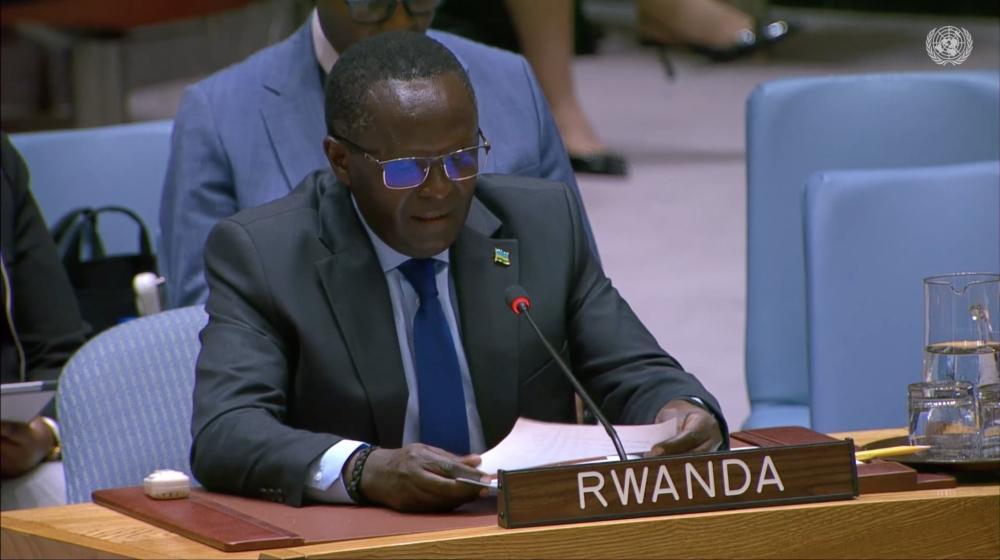Africa-Press – Rwanda. Rwanda has called on the United Nations Security Council to allow the ongoing peace process between Kigali and Kinshasa to proceed without external interference that could jeopardize the progress achieved under Washington peace agreement.
Addressing the council on Monday, October 13, Rwanda’s Permanent Representative to the UN, Martin Ngoga, reaffirmed the country’s commitment to the US-brokered peace deal signed with DR Congo on June 27, emphasizing that both countries have now defined a roadmap to address longstanding issues and insecurity in eastern DR Congo and the region.
“We have agreed between Rwanda and DR Congo on how to resolve our differences,” Ngoga said of the agreement that laid out a framework for the neutralisation of the FDLR and the lifting of Rwanda’s defensive measures.
“There is an agreement between our two countries that we made within our sovereign competencies, helped by the United States, and Qatar continues to help, the African Union continues to help.”
“We need your support, and we need you to give us the chance to implement the agreement as it is, and not to intervene in a way that may complicate that process or create deviations.”
“We have agreed on how to resolve our differences, an agreement made within our sovereign competencies, helped by the #US.
We need this #Council’s support, and to not intervene in a way that may complicate that process or create deviations.”
-Amb. @martin_ngoga at today’s UN… pic.twitter.com/onv21WhCIj
— Permanent Mission of Rwanda to The United Nations (@RwandaUN) October 13, 2025
Ngoga further called for harmonization in international support for the peace process, reiterating Rwanda’s commitment to both the Washington peace agreement and the complementary Doha process between DR Congo and the AFC/M23 movement.
He stressed that these frameworks are critical steps towards sustainable peace in the Great Lakes region.
“We request the Council to support us in that process. Rwanda will implement our commitments within this framework of the Washington agreement, and we shall continue to support the Doha process,” he said.
Turning to the broader security situation, the envoy drew the Council’s attention to persistent issues fueling instability in eastern DR Congo. He underscored that the threat posed by the FDLR, a militia with elements responsible for the 1994 Genocide against the Tutsi, remains existential for Rwanda.
“It is a question about the existential threat [FDLR] poses on Rwanda, through its intent to commit genocide, and its past when it was involved in the genocide.”
Ngoga also denounced the continued presence of foreign mercenaries fighting alongside the Congolese army in eastern DR Congo, hate speech and ethnic violence against Congolese Tutsi communities as well as the conditions of Congolese refugees who have remained in camps for nearly three decades. Rwanda hosts about 100,000 of these refugees, while hundreds of thousands more are in Uganda, Burundi and Kenya.
“The situation of refugees that have been in refugee camps for the past 28 years… none of these owned a mining site, these people were grazing cattle, that was their lifestyle, but they have been in refugee camps for 28 years,” he said.
“And the attacks on civilian areas, in Minembwe in particular, and the continued targeting of hate speech to Tutsis in the area of Uvira and in other parts of DR Congo.”
For More News And Analysis About Rwanda Follow Africa-Press






